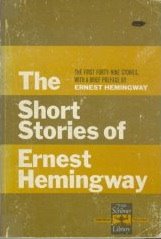 Time and place, this theme recurs a lot with me. And it definitely affected how I viewed this memoir/ode to running by Murakami.
Time and place, this theme recurs a lot with me. And it definitely affected how I viewed this memoir/ode to running by Murakami.Disclaimer: I've not read any other Murakami. I do mean to, specifically Kafka on the Shore and Wind-Up Bird Chronicle, but haven't yet. This just grabbed my attention and my wife got it for me for Christmas. Points for her.
Second disclaimer: On my run this past weekend, I aggravated my IT Band, and so I need to take a couple of weeks off to let it heal and get loose so that I can run without a sharp, shooting pain in my knee. I was very disappointed. I started reading this book right after my, I-don't-want-to-call-it-one-but-for-efficiency-purposes-I-will, injury.
Murakami comes off to me as a little arrogant. He thought one day that he wanted to write a novel. So he did. And now he's very successful. He figured, "Hey, I should go running", and so he did, and now he's completed 26 marathons in as many years, with, as he puts it, no injuries. He doesn't stretch because he doesn't need to, and runs six days a week.
I almost threw up, on my bum knee, from all of this.
Truth be told, it was a great book to read. What I take for Murakami's arrogance at times turns in to a life-affirming book with frequent insights into the way life is, into the choices and sacrifices we make, and how to best deal with those choices. He is uber-passionate about running, and it's nice to go along for the ride with someone so gung-ho for working out. Still, at the end of the day, I found myself wishing Murakami had less time, or I had more, because it seems that he is able to live the life and has been able to for some time because he just does.
There's no pity-party here. Murakami talks about why he loves running, why it has worked for him. It's actually alot like reading a blog about running by a famous author. There is relatively little insight into his life, but he goes to some cool places to run and writes about them fantastically.
The cover's cool, I'm glad I read it, if not just for the inspirational quotes my wife wrote on the inside. Maybe I'll give it another go after my IT Band heals, and we'll see how it strikes me then, huh?
Until then, if you do, keep running.



